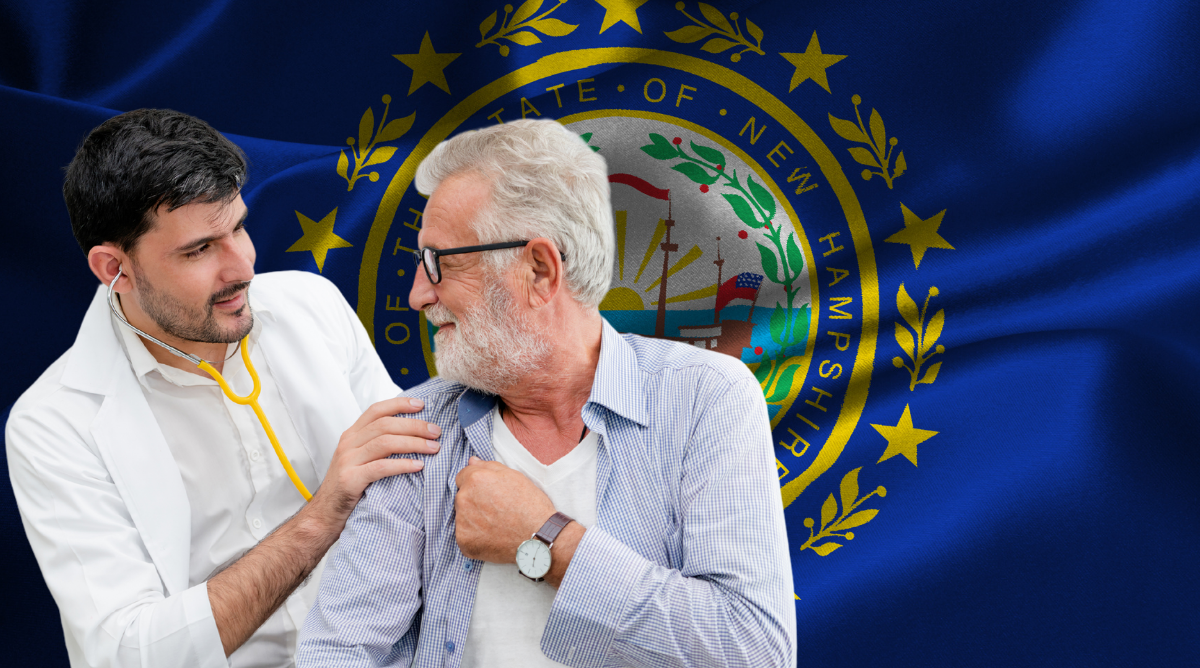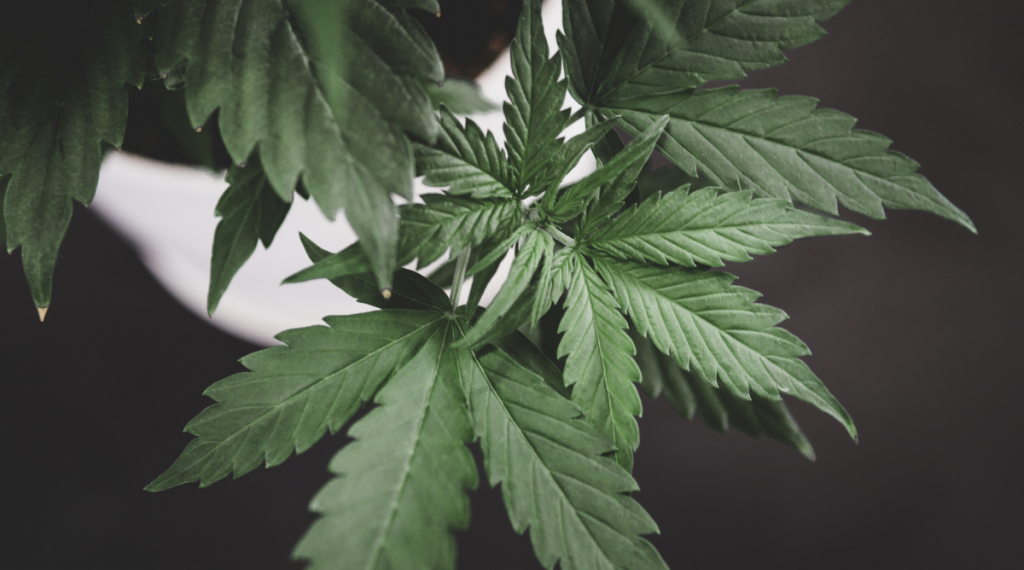
The Therapeutic Cannabis Program is administered by the New Hampshire Department of Health and Human Services. The state of New Hampshire was one of the first states to begin drafting legislation for compassionate care. Patients with qualifying health conditions can get a marijuana card in New Hampshire.
Efforts to decriminalize cannabis use in New Hampshire began with HB 118 in 1997. Did you know that from 1997 to 2017, there were more than twenty-eight (28) distinct bills created that were “killed in House” regarding cannabis legalization?
The next goal of pro-cannabis lobbyists in New Hampshire is to legalize the cultivation of cannabis at home for qualified and registered patients. However, while previous legislation has received a majority vote, home cultivation has been vetoed by the current and past Governors of New Hampshire.
If you are a patient living in New Hampshire, here is what you need to know about the current NH Therapeutic Cannabis Program. And why the home cultivation legislation has been paused for the time being by state regulators.
The Governor of New Hampshire, Maggie Hassan, signed the bill into the law for medical cannabis. Initially, the medical marijuana program in New Hampshire was limited only to patients who had “chronic or terminal diseases” or “debilitating medical conditions.”
The qualifying conditions at the time were more strict than medical marijuana programs in other states. Patients and their physicians had to prove that medical marijuana was the last option. To be used only after every other therapeutic had failed. However, the law was quickly amended to make growing cannabis at home illegal for patients. Even if they had a medical marijuana card in New Hampshire.
In 2014, House Bill 492 was passed, which laid the groundwork for decriminalization in New Hampshire. It was also the first time in history that a legislative chamber in the United States passed laws to end marijuana prohibition. And to establish a legal market for businesses. Sales would be limited to adults aged 21 years or older.
Representative Steve Vaillancourt (R-Manchester) led the bipartisan group with four co-sponsors for HB 492. It enacted a wholesale tax of $30 per ounce and a consumer excise tax of 15% per ounce on cannabis products.
On May 2, 2019, HB 364 won in a voice vote, but Governor Chris Sununu vetoed it on August 2, 2019. In February 2020, SB 420 (an identical bill) passed in the New Hampshire Senate but was suspended due to the Covid-19 health emergency. The SB 420 ‘died on the table’ on September 23, 2020.
The New Hampshire Department of Health and Human Services provides a list of qualifying health conditions. The health conditions and symptoms have not been updated or expanded since 2017.
To become a registered patient for the legalized therapeutic use of cannabis in New Hampshire, a patient must have one of the following approved conditions.
Severely debilitating or terminal medical condition or its treatment that has produced at least one of the following:

Per the New Hampshire Department of Health and Human Services, a qualifying medical condition can also mean moderate to severe chronic pain. This includes severe pain that has not responded to previously prescribed medication or surgical measures, or for which the other treatment options produced serious side effects. Moderate to severe post-traumatic stress disorder (PTSD) is also deemed a qualifying health condition in New Hampshire for inclusion into the medical marijuana program.
Each applicable qualifying health condition must be formally diagnosed by a certified physician licensed to practice in the state of New Hampshire.
Patients who are approved and registered with the New Hampshire Therapeutic Cannabis Program are provided with a card that expires after 12-months. To maintain your registration in good standing with the state of New Hampshire, patients must also attend follow-up healthcare consultations or appointments.
There is a fifty-dollar $50 fee for making your application with the New Hampshire Department of Health and Human Services. If you lose your patient MMJ card, there is a twenty-five -dollar ($25) replacement fee. Each patient receives a unique 10-digit registration number on their card.
There were two separate legal bills introduced in January 2020 that aim to legalize adult-use or recreational marijuana in New Hampshire. Residents would not be required to have a medical marijuana card in New Hampshire for recreational use. Governor Chris Sununu is opposed to the legalization of adult-use cannabis. However, in 2019, the New Hampshire House voted 200-163 to pass the adult-use legalization bill. The NH Senate voted to delay the legalization after the New Hampshire Judiciary Committee requested more time to consider the proposal.
One of the popular legalization bills would allow adults over the age of 21 to possess up to ¾ of an ounce of cannabis and grow up to six plants for personal use at home. However, the bill would not create a legalized recreational retail market for cannabis.
Patients in the New Hampshire medical marijuana program can only purchase cannabis through an Alternative Treatment Center (ATC). At the time of writing, there are five Alternative Treatment Centers located in New Hampshire. They are located in Dover, New Hampshire, Merrimack, Lebanon, Plymouth, and Conway.
A registered patient in the New Hampshire Therapeutic Cannabis Program must choose one (1) Alternative Treatment Center (ATC) to visit. This becomes the patient’s designated legal place to purchase medical marijuana.
At the time of your registration, you will need to pick one of the ATCs. If you wish to change it later, you will need to submit a Change of Information or Lost Card form. Patients can opt to change their Alternative Treatment Center whenever they want to.

The Governor of New Hampshire, Chris Sununu, issued Emergency Order #8 to permit telehealth for health care service delivery. In New Hampshire, telemedicine services were previously prohibited by the Therapeutic Cannabis Program. This was declared to be a temporary measure to protect access to safe healthcare services during the Covid-19 epidemic.
New Hampshire patients who would like to apply for their MMJ card can schedule a telemedicine appointment. The physician must be certified and licensed to practice in NH. Currently, renewing your medical card in New Hampshire can be done online. Patients must have a health evaluation and consultation with a physician for new applications and renewal of New Hampshire medical marijuana cards.
Qualifying patients must schedule with an in-state physician registered with the New Hampshire Board of Medicine or the New Hampshire Board of Nursing. A licensed physician in more than one state also qualifies as a certified provider for health-check services.
Residents who are certified to use medical marijuana in New Hampshire are limited to where they can consume it. As part of the application process, residents who want to get a medical marijuana card in New Hampshire must attest legally that they will not use cannabis in the following areas:
Patients are permitted to use medical cannabis in their private residences. If living in a rental residence, they must have written consent from the property owner. If a patient is found by law enforcement to be using medical cannabis without possession of their New Hampshire MMJ card, they can be subject to a fine of one hundred ($100) dollars.
If you are ready to take the next step and apply for a medical card in New Hampshire, find a local doctor for our website’s medical health evaluation. Many physicians charge one fee for the initial health evaluation, including the required follow-up appointments for patients.
No Information on MarijuanaDoctors.Com should be used to diagnose, treat, prevent or cure any disease or condition. You can view our Full Disclaimer here.